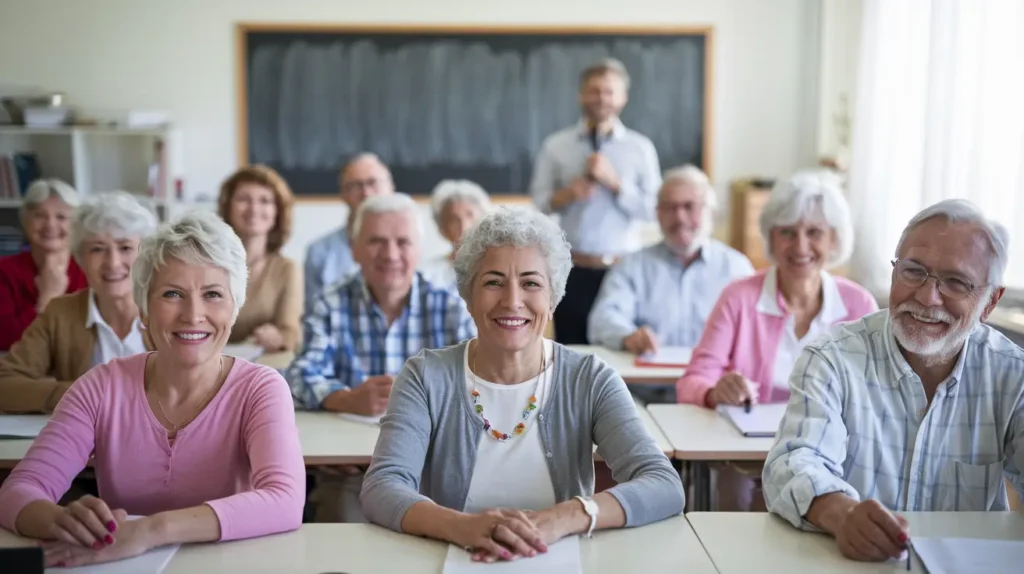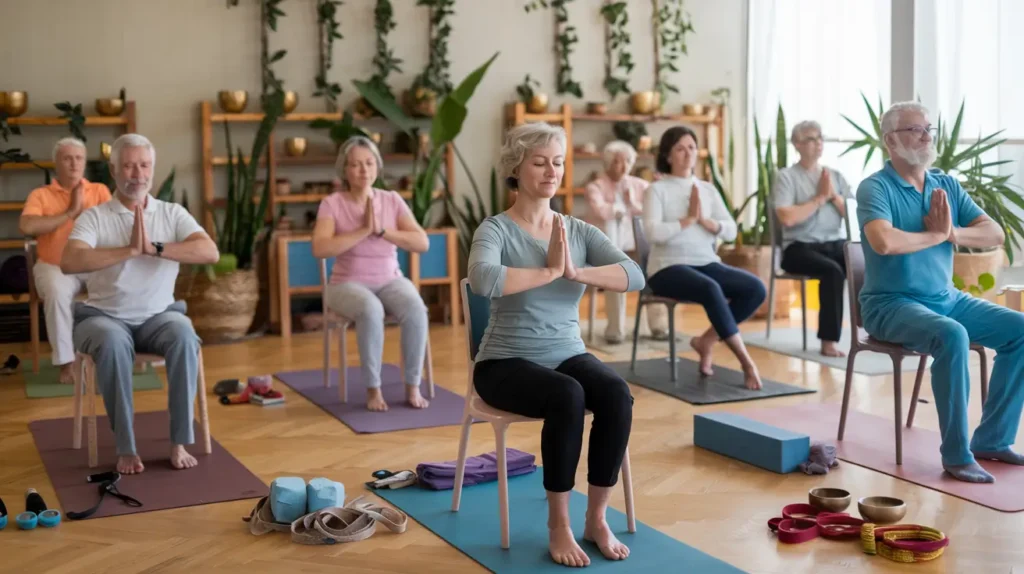
The Lifesaving Importance of Medical Alert Devices for the Elderly
As people age, the risks to their health and safety can increase significantly. From chronic illnesses and medication management t...

Seniorcenters.com is a free resource helping seniors and senior centers across America. Learn about our editorial processes.
We’ve all done bingo and learned to paint. But what about some of the newer activities Senior Centers are offering in 2024? Senior centers are increasingly evolving from traditional offerings like bingo, knitting, and basic exercise classes to more innovative and engaging activities that cater to a wider range of interests and abilities. Modern senior centers now provide unique experiences which aim to stimulate seniors both mentally and physically, promote lifelong learning, and enhance social connections in ways that reflect the interests of today’s aging population
We found some of the newest activities to showcase in 2024!
1. Virtual Reality (VR) Experiences
Seniors can “travel” to far-off places, visit museums, or even relive historical moments all by wearing a VR headset. This can be particularly impactful for seniors who are homebound or have limited mobility.
VR is just becoming popular and companies are building tools and interactive experiences which can be enjoyed by everyone. The tools out currently are great to get a glimpse of what the future holds. Companies like Rendever make VR offerings for Senior Living and Senior related businesses. Visit them to learn more, or ask your grandson/daughter if they have one at home they can show you!
The lifelong learning programs of the senior centers offer dynamic, enriching atmospheres for older adults to engage themselves in continued intellectual growth and personal development. Each class is thoughtfully planned and tailored according to a wide range of interests and needs that seniors may have. These classes take up a broad-based and disciplined area of learning-from history and literature to science, art, technology, current events, and even more. With diverse topics at their discretion, these programs make sure that each participant can find classes to his or her liking.
One of the distinguishing features of the lifelong learning programs in the country has something to do with the capability of partnerships with local universities, community colleges, and other educational institutions. Such partnerships allow the senior centers to offer high quality, college-level courses specifically tailored for the older adults.

This curriculum will be specifically adjusted to let each student move at the pace of his or her learning capacity and style, thereby making the courses equally challenging and accessible. For example, an in-depth examination and discussion of some era in a history class could be foregrounded and thus lead to comprehensive research projects, while a science course might focus on recent technological or health sciences advances through hands-on experiments and insightful lectures.
In addition to the traditional classroom settings, lifelong learning programs in more interactive formats include such features as workshops, guest lectures, panel discussions, and hands-on seminars. These interactive sessions turn out to be very participatory, giving them opportunities to share experiences, insights, and ideas with others and to engage in constructive discussions. For instance, in a literature workshop, classic novels are read in groups and discussed for their underlying themes and narratives. Some of the courses introduce computer training in their programs, realizing that digital literacy has become something akin to a life skill in present times. Classes aimed at making older adults learn using smartphones, interacting over the internet, and understanding social media applications give them a commanding lead in keeping in touch with loved ones, tapping online resources, and even being a part of virtual communities.
It promotes the learning process since they get a chance to be continuously active, participative, and connected with each other in this ever-digitizing modern world.
Adaptive sports programs are specially designed sports and recreational activities tailored for individuals with physical, cognitive, or sensory disabilities. These programs modify traditional sports to accommodate the unique needs of participants, enabling them to engage in physical activities in an inclusive and supportive environment.
The Northshore Senior Center in Washington offers a variety of adaptive sports, including wheelchair basketball and seated yoga. Many centers also have walking clubs or gentle fitness programs specifically designed for seniors with mobility issues.

Chair Yoga
Walking Clubs
Tai Chi
Seated Aerobics
Water Aerobics
Bocce Ball
Mini-Golf
Dance Classes
Bowling
Adaptive Cycling
Stretching and Flexibility Classes
Gardening Clubs
Balance and Stability Training
Adaptive Bowling
Creative Arts Therapy and Art Exhibitions at senior centers provide older adults with opportunities for self-expression, emotional healing, and social connection through artistic activities. These programs often include painting, drawing, sculpture, and music therapy, all designed to help seniors explore their creativity while addressing emotional and cognitive needs. Many senior centers also host exhibitions to display the participants’ artwork, giving them a sense of accomplishment and a platform to share their experiences with the community. This type of therapy is not only a form of recreation but also a therapeutic tool that can reduce stress, enhance cognitive function, and improve mental well-being among older adults.
Lenox Hill Senior Center provides art classes, including painting, ceramics, and music therapy sessions. The center also organizes art exhibitions to showcase seniors’ works, providing a sense of accomplishment and community engagement.
Technology Training and Digital Inclusion programs at senior centers in 2024 are essential for empowering older adults to navigate and engage with the rapidly evolving digital world. As new technologies such as smartphones, social media, online banking, telemedicine, and even virtual reality become integral parts of daily life, these programs help seniors stay connected, informed, and independent.
Many senior centers offer classes on basic computer skills, internet safety, and even more advanced topics like coding or video conferencing. These initiatives not only bridge the digital divide but also combat social isolation by enabling seniors to communicate with family and friends, access vital services, and participate in online communities. In a society where technology continues to evolve rapidly, digital literacy is key to ensuring that older adults remain active, informed, and integrated members of modern society.
No results available
Browse thousands of Senior Centers from around America. Senior Centers are an integral part of society and are the center of life for many seniors and aging adults.
Find a Senior Center which fits your needs using our search feature and keep up to date on all the latest news.
Click the icon to Ask Anything!
Advertisers are not endorsed by SeniorCenters.com or any senior center listed.
This site is not endorsed by or affiliated with any senior center or organization listed.
Just one helpful email per month – no clutter, just value.